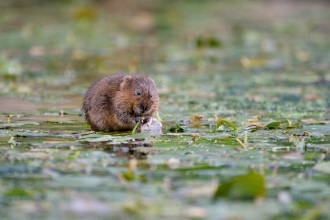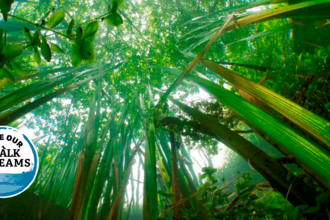The Trust is incredibly concerned at the continued reports of sewage pollution of our precious waterways – most notably on the iconic River Test in recent weeks.
We would like to thank and acknowledge the Trust members, river users and wider riparian community who have raised awareness of recent events including at the Fullerton Wastewater Treatment Works, and we are actively seeking answers from Southern Water on pollution incidents.
As the recent State of our Rivers report outlined, damaging incidents are becoming all too frequent – to the extent that no single stretch of river in England is rated in good overall health, and only 15% of English river stretches reach good ecological health standards. Sewage pollution remains one of the primary issues impacting water quality and river health.
The Trust is steadfast in its opposition to the discharge of sewage into our waterways – these practices have far-reaching, detrimental consequences for the environment, wildlife and people.
Debbie Tann MBE, Chief Executive of Hampshire & Isle of Wight Wildlife Trust, said: “I am deeply concerned and angered at the recent reports of river pollution on our doorstep in Hampshire, and in many areas across the country.
“In Hampshire, we are blessed with some of the UK’s most important rivers and freshwater habitats, among them globally-renowned and revered chalk streams.
“The Trust devotes huge amounts on time, energy and passion into protecting wonderful rivers like the Test. We are committed to combatting the issues, and our dedicated team of staff, volunteers and supporters work in many different ways to try to achieve this.
“It is disheartening and, frankly, infuriating to see that good work compromised by damaging practices such as sewage pollution.”
The Trust last year launched the campaign Save our Chalk Streams which calls for new, pioneering, bespoke protection for all chalk streams, as recommended by the CaBa Chalk Stream Strategy, to make polluters pay, hold water companies to account and ensure we can rapidly repair our waterways.
Together with 15 partner organisations and local communities, our work on the flagship Watercress and Winterbournes scheme protects and celebrates seven precious chalk streams – the upper tributaries of the celebrated Rivers Test and Itchen. This project includes restoring wildlife habitat, monitoring water quality, removing invasive species, and educating young people.
We are using nature-based solutions to restore and revitalise rivers, improving water quality, reducing pollution, and enhancing biodiversity. And our expert ecologists are working to protect and preserve the endangered the white-clawed crayfish, the UK’s only native crayfish, through the Southern Chalk Streams project.
However, this important work in addition to the daily activities on our 67 nature reserves, and indeed all of the work being carried out across the community by those who love our waterways, is being undermined, with recent pollution incidents exposing issues on a wider scale.
In addition to our direct conservation activities, we collaborate and work with water companies for a number of reasons including to encourage responsible wastewater management practices, strengthen our capacity to address water-related challenges and to build a constructive approach to environmental advocacy.
We frequently call out poor practices and hold polluters to account through our communications and advocacy work, while the Trust also engages with politicians, MPs and local councillors to elevate the importance of addressing sewage discharge. Together with our national policy team, we are continuing to lobby government to improve regulation of polluting industries and ensure that polluters are properly held to account.
Debbie Tann MBE added: “We recognise there is a lot more work to be done. Through our conservation, advocacy, campaigning and communications activities, we will do all we can to ensure the long-term protection of our waterways.
“We are also keen to continue actively engaging across the riparian community to bring about the positive and meaningful long-term change that we all want to see.”


